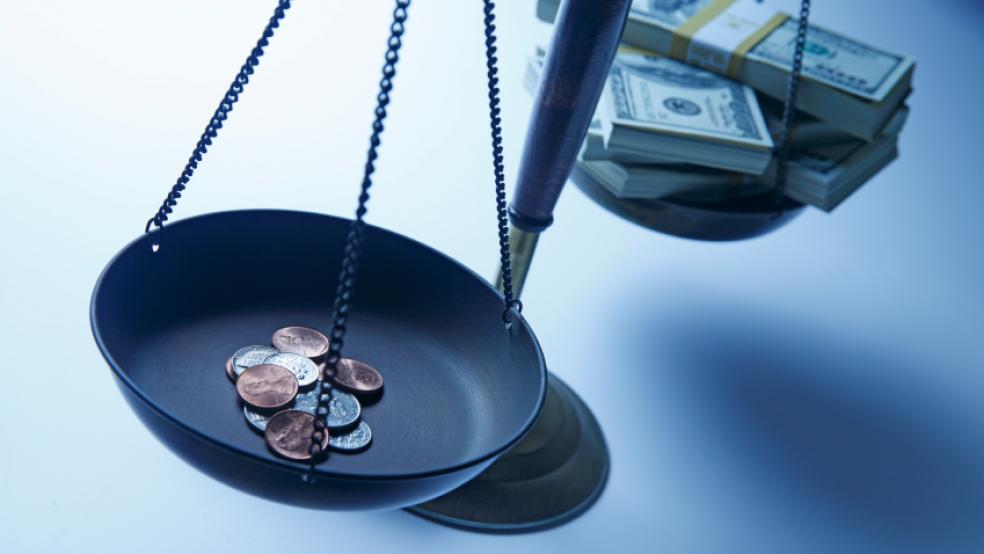The question of income in equality in the U.S is generally viewed as a political one, with President Obama and the Democrats insisting that current gap between the richest in the country and everyone else as morally unacceptable, and the Republicans, in general, arguing that the rich earn their money through hard work, and that taking it away and redistributing it to the rest of the population is unjust.
Economists at the bond rating agency Standard & Poor’s think the question needs to be reframed.
“Despite the tendency to speak about this issue in moral terms, the central questions are economic ones: Would the U.S. economy be better off with a narrower income gap? And, if an unequal distribution of income hinders growth, which solutions could do more harm than good, and which could make the economic pie bigger for all?”
Related: Why the Bond Market Is Poised for a Plunge
The answer to the first question, they find, is an unequivocal yes. “Our review of the data, as well as a wealth of research on this matter, leads us to conclude that the current level of income inequality in the U.S. is dampening GDP growth, at a time when the world's biggest economy is struggling to recover from the Great Recession and the government is in need of funds to support an aging population,” they write.
The answer to the second question is more complicated, but it involves increasing both the taxes paid by the wealthy and an increase in government spending.
The report does not call for confiscatory taxation of the rich, but the elimination of tax breaks that benefit them disproportionately as well as “some degree of rebalancing,” which appears to be code for higher rates on the wealthy. One possibility raised in an International monetary Fund report cited by the authors, is increasing the “inheritance tax” rate and decreasing taxes on earned income.
Related: Market ‘Black Swan’ Fear at Record High
In addition to changes to the tax code, S&P finds that “spending in the areas of education, health care, and infrastructure…could help bring under control an income gap that, at its current level, threatens the stability of an economy still struggling to recover. This could take the form of reallocating fiscal resources toward those with a greater propensity to spend, or toward badly needed public resources like roads, ports, and transit. “
The authors of the report go to great pains to sound apolitical – noting, for instance, that it is not necessary to eliminate inequality altogether.
“A degree of inequality is to be expected in any market economy,” they write. “It can keep the economy functioning effectively, incentivizing investment and expansion--but too much inequality can undermine growth.”
Related: The Next Financial Crisis Is Brewing Right Now, and Regulators Are Missing It
However, it is hard to read the report as anything other than an implicit endorsement of the Obama administration’s position on the need to reduce inequality.
The report’s policy recommendations, while hinted at rather than expressly stated, are hardly something conservative Republicans are likely to welcome. Increasing taxes on the wealthy as a means of redistributing income is routinely referred to as “class warfare” within the GOP – and the levy delicately referred to as the “inheritance tax” by the authors, is more popularly known, in conservative circles at least, as the “death tax.”
Whether the S&P findings will have substantial impact on the public debate about income inequality remains to be seen, but the company’s stock-in-trade is sober, reliable analysis and predictions. So, if this is what its experts are worried about, it seems likely that the same concern is on the minds of other mainstream economists.
Top Reads from The Fiscal Times
- 5 Reasons to Be Optimistic About Economic Growth
- Russia, U.S. Edge Toward Economic Warfare
- CIA’s Spying on Senate Staff Complicates Torture Report





